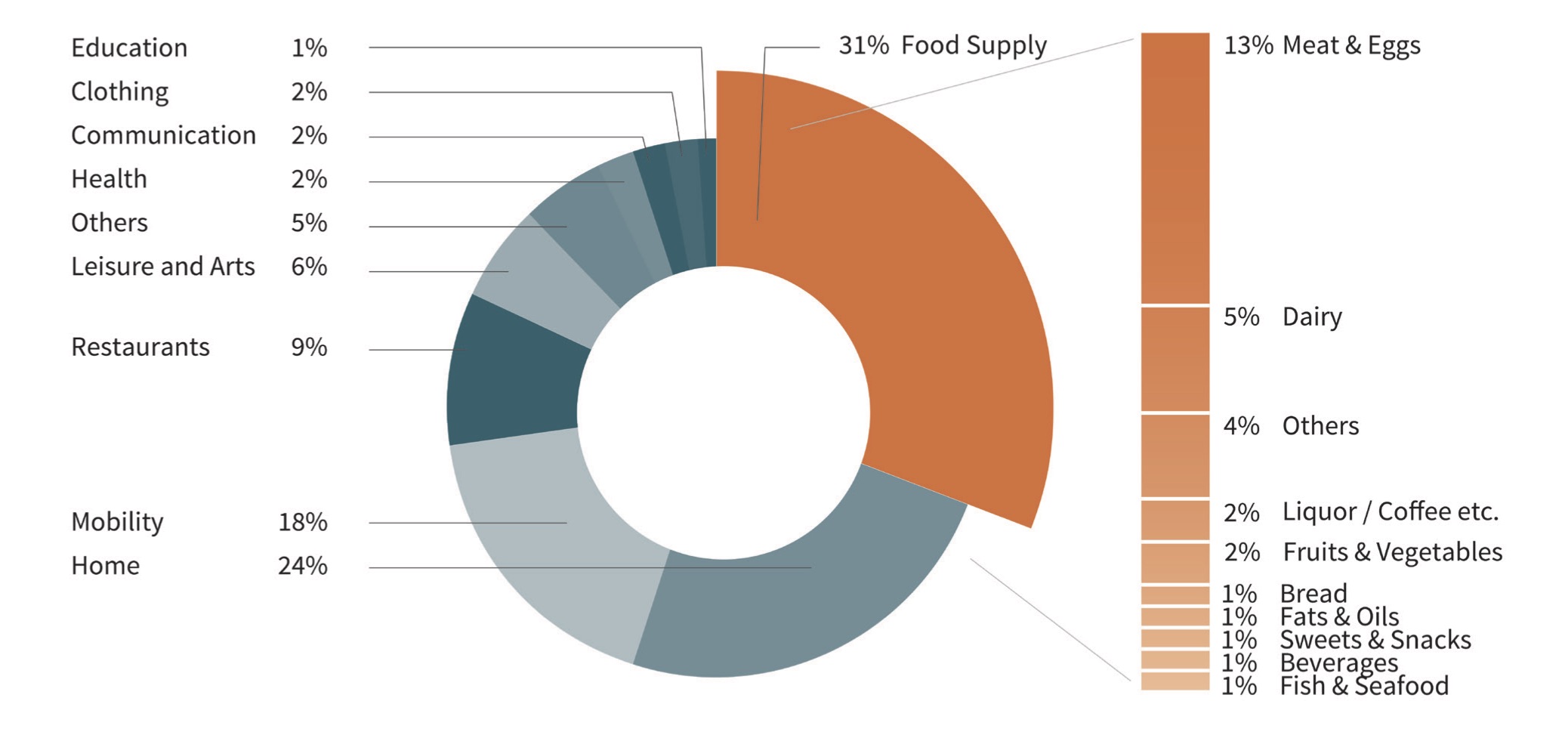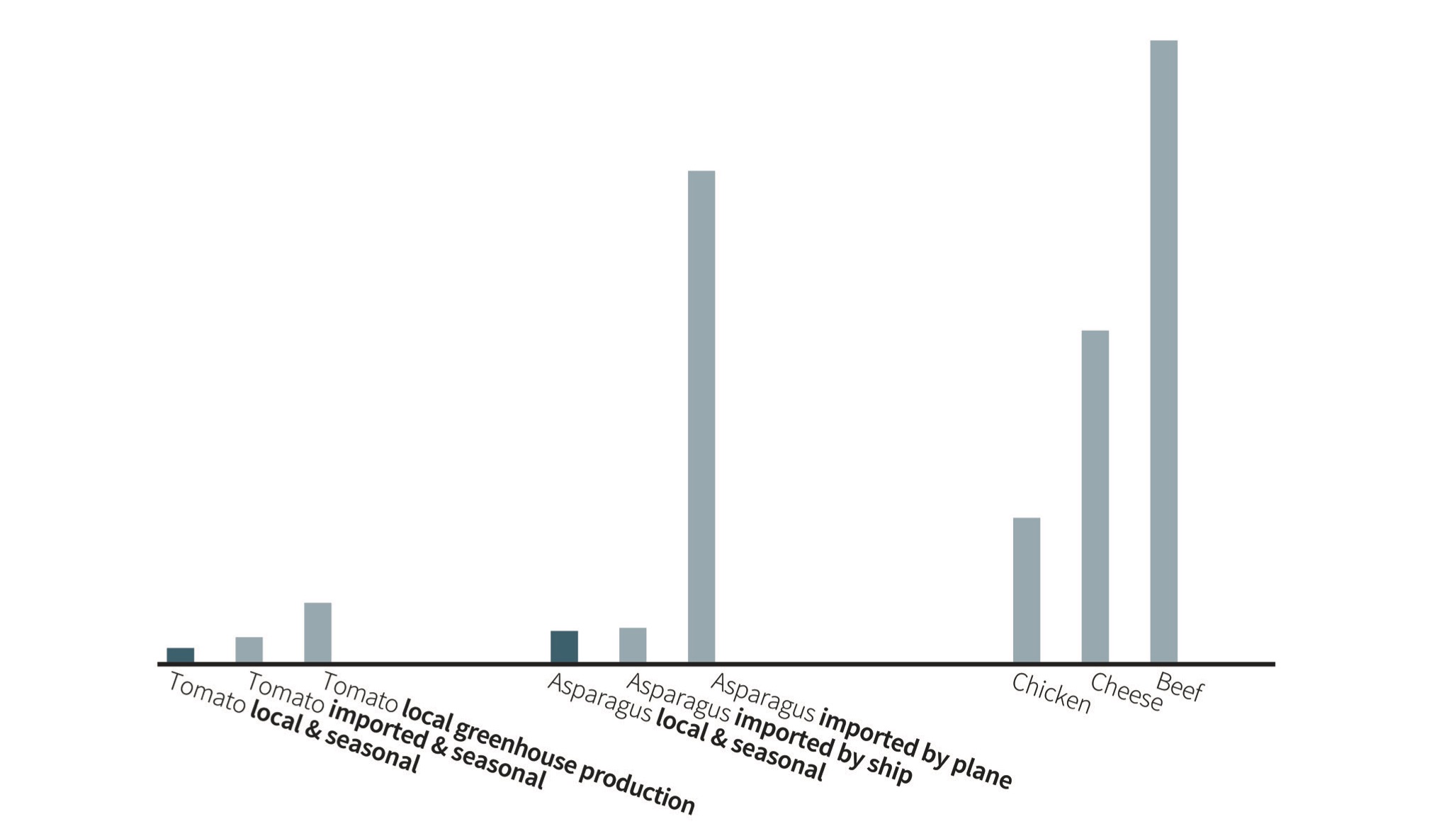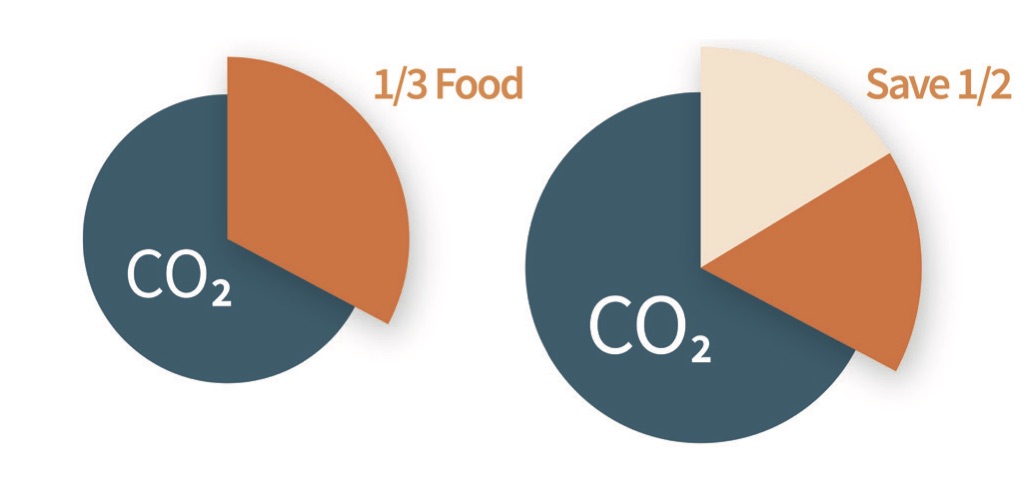The carbon footprint of a food is measured with a life cycle assessment (LCA). It is a systematic and quantitative analysis of the environmental impact of every single life stage of a product. LCAs account for transparency and comparability between the impacts of different life stages such as production, handling, transportation, storage and disposal. Life cycle assessments can thus support us in decision-making by showing which life stages, processes and products have a lower carbon footprint.
All greenhouse gases related to the production of food are expressed in CO₂-equivalents: converted into the amount of carbon dioxide with a similar climate impact. In general, when we talk about CO₂-emissions we actually refer to CO₂-equivalent emissions.












